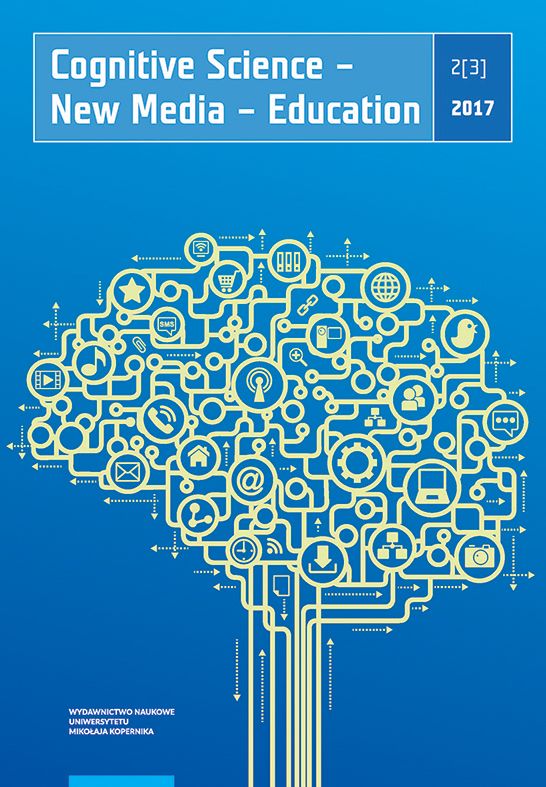Cognitive and technological aspects of e-learning in context of robotization
DOI:
https://doi.org/10.12775/CSNME.2017.013Keywords
intelligent system of feedbacks, robotic process automation, artificial intelligence worker, Blue Prism automationAbstract
The development of e-learning education led to the emergence of two main problems of such form of education, which are the user-system interaction from the cognitive prospective, and the analysis of massive data received out of students’ activity. The development of artificial intelligence concepts and robotic process automation (RPA) tools, both problems might be solved in a more efficient way. The article presents the intelligent system of feedbacks, realized as JavaScript extension to Moodle platform, which intends to strength cognitive output of the performed learning activity, creating an illusion of the trainer’s presence and, therefore, contribute to the resolution of the first problem. The resolution of the second problem is proposed using artificial intelligence worker built in Blue Prism RPA platform, which independently collects test results and runs an Excel macro, which performs validation of test questions upon strict criteria of selection. Such validation process allows to select the questions which are coherent with the index of complexity and the index of differentiation capacity.
References
Frey C. B., Osborne M.A. (2016), The future of employment: how susceptible are jobs to computerisation? – September, 17. – 2013. – URL: https://web.archive.org/web/20160205044724/http://www.futuretech.ox.ac.uk/news-release-oxford-martin-school-study-shows-nearly-half-us-jobs-could-be-risk-computerisation (access 03.05.2013)
Siemieniecki B. (2007), Pedagogika medialna, Warszawa: Wyd. Naukowe PWN.
Morbitzer J. (2017), Edukacja w epoce sieci – między intelektem a rozumem, URL: http://www.kopernik.org.pl/fileadmin/user_upload/PROJEKTY_SPECJALNE/Konferencja_Pokazac-Przekazac/Edycja_2017/PP_2017_Publikacja_PP.pdf
Karwasz G., Karbowski A., Rochowicz K. (2014), Dydaktyka fizyki z elementami dydaktyki ogólnej i dydaktyki astronomii, Toruń: Wyd-wo naukowe UMK.
Piaget G. (1994), Selected psychological works, Moscow: International pedagogical academy.
Galperin P. (2008), Psychology as an objective science: selected psychological works (Ed. A.I. Podolski), Moscow- Voronezh: Publishing House of the Russian Academy of Education.
Shvets V.D. (2015), Psychological and pedagogical aspects of student learning management with the use of distance learning technologies, “High education in Ukraine”, Issue 2, p. 37-43.
Miller, P. H. (2003), Theories of developmental psychology; Worth: New York.
Shvets V. (2015), Electronic resource “Electrotechnics” as a tool of students’ educational activity management, “Pedagogika Szkoły Wyższej”, Issue 1, s.107-117.
(1998) On the procedure for the development of normative and methodological provisions for the training of specialists with higher education. Order of the Ministry of Education of 31.07.98 No. 285, “Legislation and regulations on education in Ukraine”, Issue 12. –Part III.
Pistone, P., Shvets, A. (2014), Investigation of the activity based teaching method in e-learning musical harmony course. In: Proceeding of EVA Florence 2014. Firenze University Press: Florence, ed. Vito Cappellini, 7th - 8st May 2014.
Downloads
Published
How to Cite
Issue
Section
Stats
Number of views and downloads: 808
Number of citations: 0



